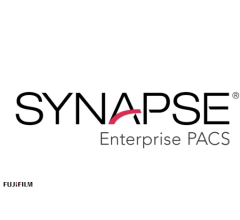
December 28, 2021 — The American Society of Anesthesiologists (ASA),the American College of Emergency Physicians (ACEP) and the American College of Radiology (ACR) today brought a lawsuit against the federal government charging that the interim final rule (IFR) on surprise medical billing goes against the language of the “No Surprises Act” and will ultimately harm patients and access to care.
The No Surprises Act, which was passed in December 2020, was designed to protect patients from surprise out-of-network bills. Although the law intended to resolve payment disputes through an impartial arbitration system, the interim final rule released by the Departments of Health and Human Services, Labor, and Treasury create a system that empowers profit-seeking insurance companies to strong-arm local community physician practices, narrow their provider networks and reduce access to care.
The recent rule ignores the law’s intent to create a fair independent dispute resolution (IDR) process, according to ASA, ACEP and ACR. In the law that was passed, the arbiter is directed to consider all information submitted by the physician and insurer, including the median in-network rate, complexity of the case, previously contracted rates and market power of the physician and insurance company, among other things.
The law states that the qualified payment amount (QPA) could be one of many equally weighted factors considered in payment disputes. However, the departments made the QPA — an unverified rate set by insurers — the primary factor in the IDR process. This sets an artificially low benchmark payment, for all care – whether in network or not, which may not support wider access to care – particularly in underserved areas.
“We strongly support the patient protections in this law. However, instead of expanding in-network access for patients, this rule does is exactly what we explained to Congress and the rule-making agencies would happen: insurance companies will use their overwhelming market power and these flawed rules to push more physicians out of network and fatten their bottom line,” said ASA President Randall M. Clark, M.D., FASA. “If these rules are not overturned or corrected, insurance companies will use strong-arm tactics to abuse these laws as we have already seen in North Carolina, ultimately compromising timely access to care, potentially causing severe disruption and the wholesale loss of care for patients in areas that really need it.”
“It is deeply troubling that the administration would upend the deliberately balanced mechanism to resolve billing disputes established by Congress as part of the No Surprises Act. We are left with a law that will tilt market forces in favor of insurers and they are already exploiting their newfound incentive to push emergency physicians out of network. Legal remedy is necessary so that the IFR does not undermine the entire dispute resolution process,” said Gillian Schmitz, M.D., FACEP, president of ACEP.
“Many practices are reeling from the pandemic’s economic impact. Imaging costs are down in recent years – including 2020. Now, insurers are using the new law to increase their profits by artificially cutting reimbursement to a point that many providers can’t absorb and become unable to remain in their network,” said Howard B. Fleishon, M.D., MMM, FACR, chair of the American College of Radiology Board of Chancellors. “Rural areas and underserved communities may be hit hardest by this insurer overreach that could result in longer wait times for care, delayed diagnosis, higher out of pocket costs to treat more advanced conditions, and even deaths as insurers use the new law to deny patients covered access to their chosen providers. With this harmful regulation due to take effect January 1, we have little choice but to protect patient access to care by taking legal action.”
This lawsuit does not impact No Surprises Act protections to hold patients harmless during insurer-provider out-of-network payment disputes and will not increase patient out-of-pocket costs. The lawsuit was filed today in federal district court in Chicago.
For more information: www.acep.org


 February 13, 2026
February 13, 2026 









